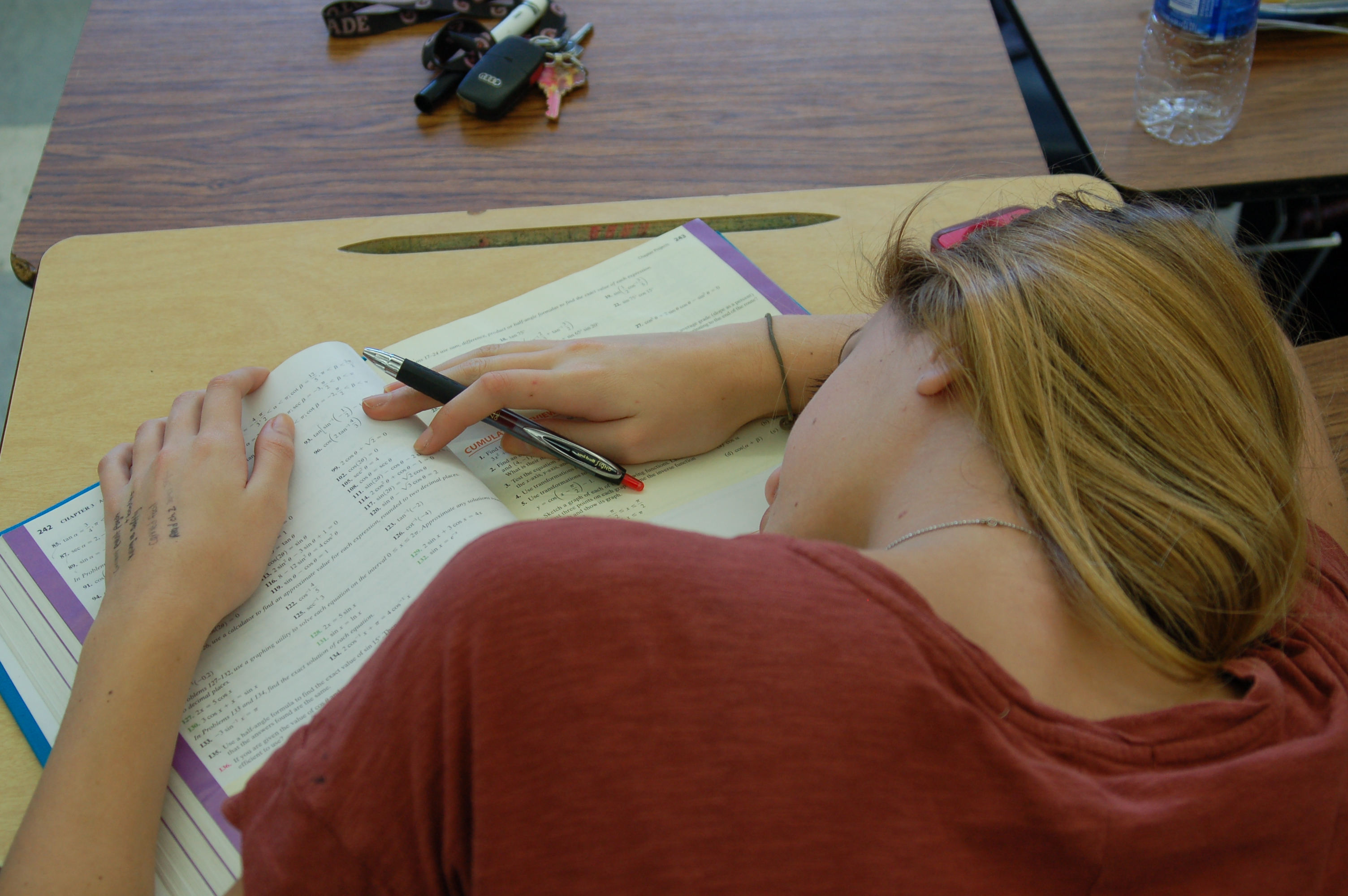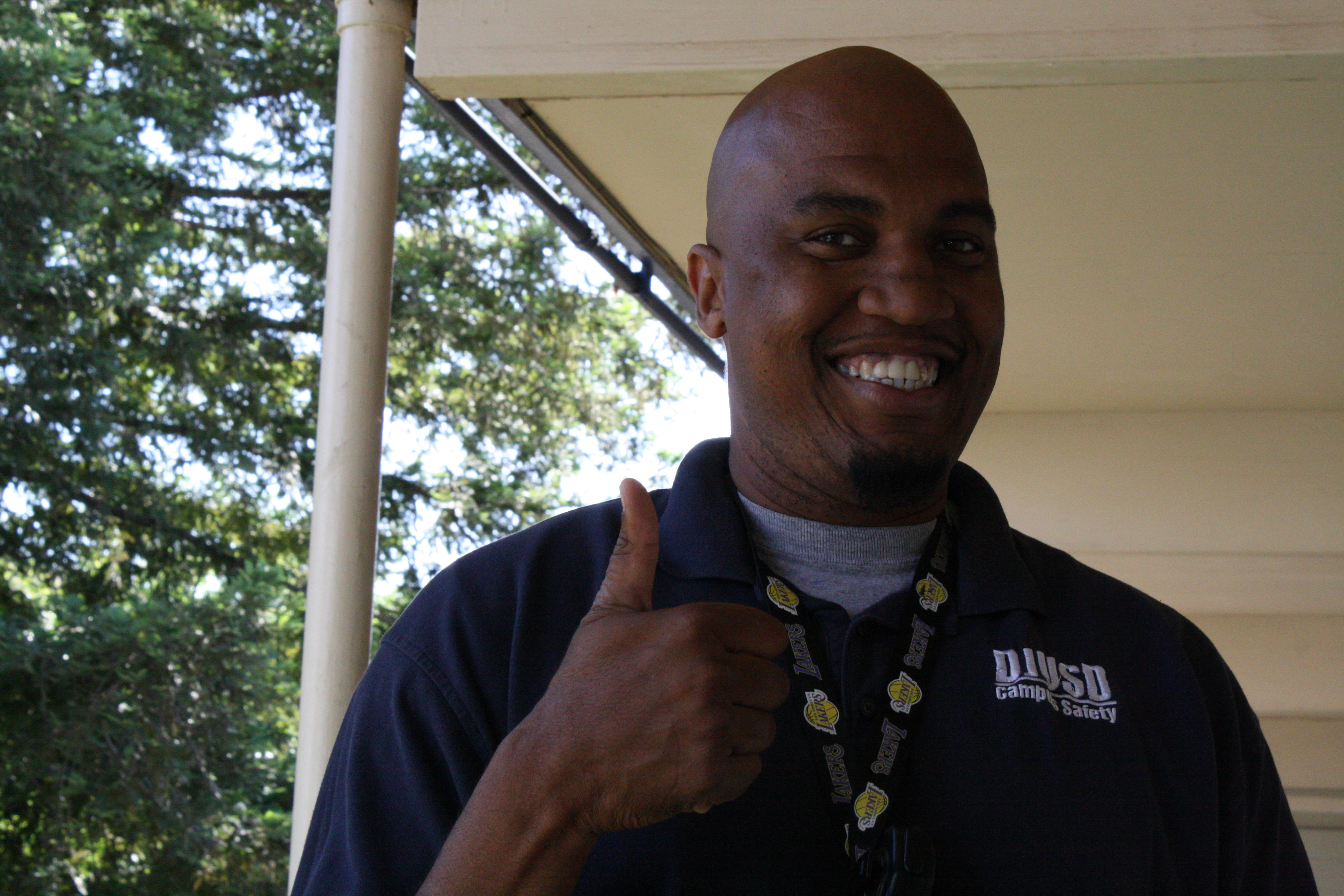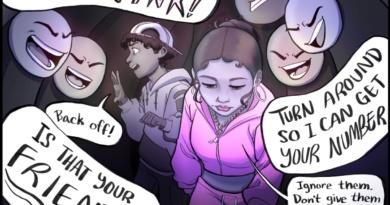Sleep deprived students suffer the consequences

By Chase Rowe,
HUB Correspondent–
According to school nurse Rhona Youtsey, lack of sleep has always been a common problem among students at Davis High. Ninety percent of teens are sleeping less than the recommended nine and a half hours.
Youtsey said that in reality, high school students sleep for around six hours each night.
“Students I’ve talked to say they stay up for homework, but they’re also probably spending time on the computer, playing games, and watching movies,” Youtsey said.
Sophomore Tim Vidales blames an early start; he gets up at 5:30 in the morning to get to school on time. Vidales said he usually sleeps only seven hours a night.
“I got around an hour and a half more sleep in junior high, but I didn’t need it. I just didn’t feel as tired [as at DHS],” Vidales said.
Youtsey said that getting enough sleep is more important in high school than in junior high or elementary schools. High schoolers undergo fast bodily changes, and they need more sleep to help fuel these developments.
Senior Cristina Ruiz-Jimenez said she used to sleep seven hours a night, but has been sleeping six hours each night with the start of senior year. She says she’s always busy with homework, college visits and applications and extracurricular activities.
Ruiz-Jimenez said she knows of people who had to visit the nurse’s office because they didn’t get enough sleep the previous night to function well. She said she herself had considered taking the day off before.
“Lack of sleep will accumulate, and students become sleep-deprived,” Youtsey said.
Youtsey mentioned that sleep-deprived students can’t pay attention in class, have mood swings and behavioral problems.
“When I don’t get enough sleep I feel zoned-out and I can’t pay attention,” Ruiz-Jimenez said.
Ruiz-Jimenez knows that teens are supposed to sleep eight to 10 hours, but says she’s too busy to meet that quota each night.
Students often try to make up lost sleep all at once during weekends, or on Tuesdays before late start on Wednesdays.
“On Monday and Tuesday I feel really tired, so I make up for it on Tuesday night,” Vidales said.
Ruiz-Jimenez said she sleeps until noon on weekends to make up for sleep lost throughout the week.
Youtsey said sleeping all at once to make up for hours lost at night just makes sleep-deprivation worse.
According to Youtsey, people sleep and wake by their circadian rhythms, also known as biological clocks. Taking long naps and sleeping inconsistently sets the circadian rhythm off-balance.
“This can cause students to feel alert and awake at night, and tired in the morning,” Youtsey said.
She said students often drink caffeine to curb the onslaught of sleep, and that this also offsets the circadian rhythm; however, sleep deprivation can be solved.
“If you are sleep deprived, try to go by a schedule,” she said.
Youtsey advises going to bed and waking up at the same time each day to reset the body’s clock and get back on track.




